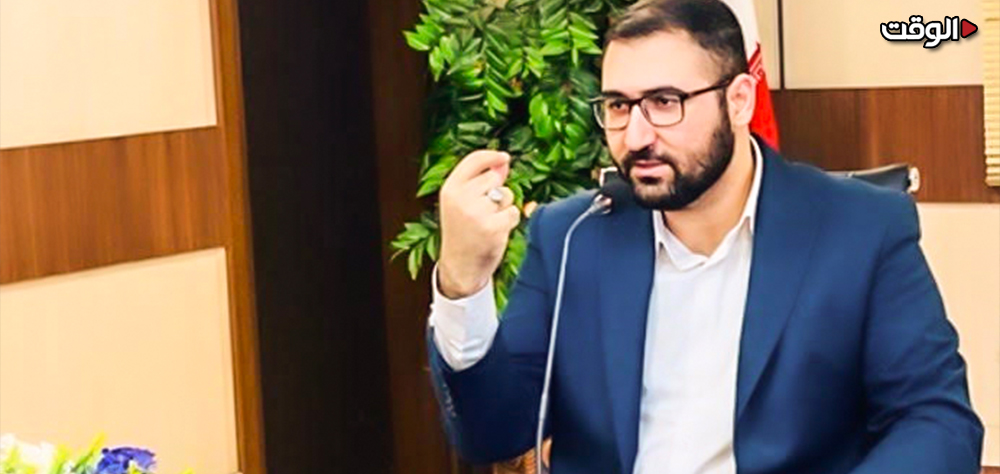Alwaght- The Fourth round of Lebanon municipal and mayoral elections were held at a time the country's political atmosphere is heavily influenced by regional developments and aftermath of the Israeli war. The elections were described as a determining test of the Lebanese political future, and a theater where home and foreign pressures for undermining Hezbollah's position created a complicated and challenging competition. However, relying on its wide popular base, Hezbollah managed once again to secure a victory.
To shed light on the aspects of elections and possible outcomes for Hezbollah's position, Alwaght talked to West Asia affairs expert Mohammad Reza Sadeghi.
Alwaght: Media labeled the recent elections as the most challenging in recent years. Why were local elections these important?
Sadeghi: After the developments that took place in the region, Hezbollah was under a lot of pressure from inside and outside to make the most of the security and military situation that it was in due to the loss of its commanders. But the recent elections were, in my opinion, the second referendum that showed that the Lebanese people are still standing behind the resistance. The first referendum was during the grand funeral ceremony of Hezbollah chief Sayyed Hassan Nasrallah, and the second one was attended by the majority of Shiites and political movements close to the resistance, such as the "Free National Movement", which were able to secure a strong position. Therefore, we will witness the third referendum in the upcoming parliamentary elections.
The municipal elections will also have an impact on the reconstruction process, since they play an important role in the executive area. There is now a lot of pressure from foreign powers to play a role in the reconstruction process so that they can put pressure on the resistance and thereby make the reconstruction issue contingent on a series of changes in Hezbollah's structures. However, I think the trend that has emerged is positive and is in line with the goals that the the resistance movement has set, both in the field of reconstruction and in the political arena for the parliamentary elections.
Alwaght: What were the reasons behind Hezbollah win? What strategy has Hezbollah used and what message have the people sent with their vote?
Sadeghi: If we closely watch the election process, we can see that in all predominantly Shiite areas, the turnout rate was above 45 percent and in Lebanon is one of the key political indicators. Also, in the Shiite areas, despite the heavy expenses that domestic and foreign actors made to create independent Shiite groups and to compete against Hezbollah and the Amal Movement so that they could even win a seat, they did not achieve success. In these elections, the spirit and loyalty of the Lebanese Shiites showed themselves with strength, and Hezbollah and its allies won a great victory in all Shiite areas, and out of 272 municipalities in southern Lebanon, 102 municipalities were included in the resistance list, indicating the people's desire for the resistance and traditional Shiite parties.
Alwaght: Given the anti-Hezbollah stances the government has taken in recent months, how this election outcome influence the resistance movement's domestic political situation and its position in the politics?
Sadeghi: As I said above, these elections were a referendum through which Hezbollah managed to firmly save its popular base. This win will be repeated in upcoming parliamentary election and people will show how popular the resistance is among the Lebanese.
We should not forget that this popular base will make it difficult for the enemies and internal opponents, just as the pressure and stances against the resistance eased after Sayyed Nasrallah's funeral. Therefore, after the elections, the pressure will be easier, and the domestic and foreign opponents, with this popular show that the resistance has made, will come closer to the reality that the pressure will not be applied to Hezbollah beyond a certain point. Therefore, with the results of the next election, the opponents of Hezbollah will be pushed agae the wall and the movement will maintain its current popular position.
I think that part of President Joseph Aoun's stances against Hezbollah are driven by American, Saudi, and French pressures and actually they serve to ease these pressures and can seem logical and are sole stances without actions. Being a former army chief, Aoun is well aware he cannot fast disarm Hezbollah or he cannot heighten tensions with sectarian conflict, and in fact the country's conditions disallow this.
Therefore, the prime minister and the president know that Lebanon is currently in a state of fragile stability, and if the Shiite coalition wants, it can break this relative stability. Having in mind that the Christian parties, especially Gebran Bassil, the leader of the Free National Movement, who had taken relatively negative positions against the resistance at the beginning of the ceasefire, has again coalesced with Hezbollah and the Amal Movement in these elections, which shows that the coalition that was damaged after the ceasefire can be mended and the powerful coalition held by Hezbollah and its allies in recent years can be rebuilt, and this process will cause the resistance coalition to influence the government's positions.
Alwaght: So, can we suggest that victory in recent elections can help Hezbollah beat existing challenges?
Sadeghi: The election results are as Hezbollah wished and in this situation that home and foreign pressures are being put on the resistance, these elections were a kind of referendum and power display and a show of popular base, helping check pressures. The win also contributes to rebuilding Hezbollah's strength politically, socially, and culturally and certainly mitigate foreign pressures on it.



























